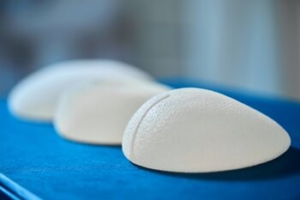If you’ve ever thought about getting breast implants, you’ve likely wondered about the pain involved in the process. With so many factors at play – from what type of implant to choose and how it will be placed to your postoperative recovery and long-term health implications – it can seem daunting. Fortunately, a wealth of information is available to help answer all questions related to this procedure, including those that revolve around pain management techniques before, during, and after the procedure. This blog post will explore everything you need to know about experiencing breast implant surgery with minimal pain levels.
What Causes Breast Implant Pain and Discomfort?
This blog post discusses the possible causes of breast pain and discomfort.
Surgical Procedure
The surgical procedure is one of the most common causes of breast implant pain. Breast augmentation surgery involves:
- Making incisions in the breast tissue.
- Creating a pocket for the implant.
- Placing the implant in the pocket.
This can cause pain, discomfort, and swelling, lasting several weeks.
Capsular Contracture
Another cause of breast implant pain and discomfort is capsular contracture. This is a situation where the scar tissue around the breast implant starts to contract, causing the implant to become hard, painful, and distorted. This problem can be treated with surgery to remove the scar tissue.
Implant Type
The type of implant used can also cause pain and discomfort. Saline implants comprise sterile saltwater and feel firmer than natural breast tissue. Silicone implants, on the other hand, feel more natural but may cause pain if they rupture. Gummy bear implants are also known for maintaining their shape and reducing the risk of rupture.
Implant Placement
The placement of the implant can also cause discomfort and pain. Implants can be adjusted either above or below the muscle. Placing the implant above the muscle tends to cause more discomfort because the implant is close to the skin. Placing the implant below the muscle provides more coverage and reduces the risk of capsular contracture.
Infection
Infection is a rare but possible cause of breast implant pain and discomfort. Infection symptoms include fever, redness, swelling, and discharge. Infections can be treated with antibiotics, but surgery may be required in some severe cases.

Ruptured Implant
A ruptured implant occurs when the outer shell of the implant leaks or bursts, leading to pain in the breast. Although rare, this condition can happen due to wear and tear on the implant caused by age, trauma, or capsular contracture. For effective treatment, the implant requires removal or replacement.
Allergic Reactions
Not quite as common, but some women may experience an allergic reaction to the implant’s shell or the filler material. Symptoms of an allergy include rashes, itching, pain, or inflammation. In the event of an allergy, implant removal will be necessary, with replacement recommended once the allergy has cleared.
Chest Wall Pain
Pain can also occur where the implant sits against the chest wall. This pain can be caused by wearing an incorrectly fitting bra, chronic chest wall injury, or postoperative breast pectoral muscle spasms. Wearing a properly fitting bra or undergoing physical therapy and chest wall stretching exercises may be beneficial to remedy this type of pain.
Common Symptoms of Breast Implant Pain
Various factors, including position, implant size, and surgical technique, can cause breast implant pain. In this section, we will discuss some of the most common symptoms of breast implant pain and the potential causes.
Sharp or shooting pain
One of the most common symptoms of breast implant pain is sharp or shooting pain. This pain may be felt around the breast area and can be intense. Sharp pain is often caused by nerve irritation, which can occur when the implant is adjusted too close to a nerve.
Tightness or discomfort
Another symptom of breast implant pain is tightness or discomfort in the breast area. This can be caused by the implant stretching the skin and tissue in the breast. This type of pain is usually more common in women who have chosen a larger implant size.
Diminished range of motion
If you are experiencing breast implant pain, you may also notice a diminished range of motion in your arms, shoulders, or back. This is often the case when the implant is placed under the pectoral muscle in the chest wall.
Burning or general discomfort
Some women may experience a burning sensation or general discomfort in the breast area after getting breast implants. This type of pain is often caused by inflammation around the implants or pressure on the nerves in the breast.
Swelling or fluid buildup
In some cases, breast implant pain can be caused by swelling or fluid buildup around the implant. This may be accompanied by redness and warmth in the affected area. If you are experiencing these symptoms, seeking medical attention right away is important.
Types of Treatments for Relieving Breast Implant Pain
In this blog section, we’ll explore the different types of treatments for relieving breast implant pain and help you find the right one based on your specific situation.
Analgesics
Analgesics are a type of medication that relieves pain. They can be over-the-counter medicine, such as ibuprofen and acetaminophen, or prescription medicine, such as opioids. Analgesics are commonly prescribed to women experiencing mild to moderate breast implant pain. It is important to follow the prescribed dosage of analgesics to avoid addiction or other health complications.

Massage therapy
Massage therapy is another type of treatment that can alleviate breast implant pain. This therapy can improve blood circulation and reduce inflammation in the area. Massage can also help tear up scar tissue, which is often a cause of breast implant pain. For best results, a certified massage therapist should conduct this treatment.
Physical therapy
Physical therapy involves exercises that can increase strength, mobility, and flexibility. It can also aid in reducing breast implant pain. A physical therapist can make a customised exercise program tailored for women experiencing breast implant pain. This therapy should be done under medical supervision.
Compression garments
Compression garments like bras and sleeves help support the breast area and reduce swelling. They can also help ease pain in the breast implant area. Compression garments can be prescribed by a doctor or recommended by a postoperative therapist.
Surgery
In rare situations, surgery may be needed to relieve breast implant pain. This treatment usually involves removing or replacing the implant. A medical professional will decide if surgery is necessary based on the severity of the pain.
What Medications Are Available for Reducing or Managing Breast Implant Pain?
Below are some of the most commonly prescribed pain medications for breast implant pain.
Paracetamol
Widely considered the cornerstone of pain relief following breast implant surgery, paracetamol can help reduce pain and swelling. It is a relatively mild painkiller suitable for most patients and often used in combination with other medications.
NSAIDs (Non-Steroidal Anti-Inflammatory Drugs)
These are other common medications prescribed by doctors following breast implant surgery. NSAIDs are excellent at reducing inflammation, which will significantly decrease pain. Specific NSAIDs are available in a prescription form that is more potent than over-the-counter brands.
Opioids
In severe cases, doctors may prescribe opioids, such as codeine and oxycodone, to help control pain symptoms. Opioids are the most powerful pain relief available, but they come with various possible side effects. Furthermore, a doctor may prescribe opioids for only a few days to prevent addiction or abuse.
Muscle Relaxants
In addition to painkillers, muscle relaxants can help alleviate the pain from surgery. These medications help calm the muscle tissues around the implant, reducing tension and discomfort. As a result, the patient will have a more relaxed and comfortable recovery period.
Gabapentin
Gabapentin is an anti-seizure medication that can also help reduce postoperative pain and promote sleep. It may be prescribed to reduce nerve pain, which can result from the surgery and persists longer. It is also relatively non-addictive, making it an excellent choice for some patients.
How to determine if you need a medical professional’s help?
In this section, we will discuss how to determine if you need a medical professional’s help with breast implants and the necessary steps you can take to ensure your safety.
Pain and Discomfort
It’s common for patients to experience some level of pain and discomfort following breast implant surgery. However, if you notice that the pain is intensifying and causing discomfort, you may need medical attention. It could be a sign of an infection or other complications.
If the pain is accompanied by skin redness, swelling, or fever, it is important to visit your medical professional immediately. Delaying treatment could have severe implications on your health.
Changes in Appearance
Breast implants are designed to improve natural curves and give you a larger, fuller bust line. However, if you notice any changes in the appearance of your breasts, such as asymmetry, irregular shape, or lumps, it could be a cause for concern.
These changes would indicate a malfunctioning implant or other complications and require immediate medical attention. Regular self-exams and check-ups with your medical professional can help detect these changes early on.
Unusual Sensations
Patients undergoing breast implant surgery might experience unusual sensations such as numbness, tingling, or a burning sensation around the breast area. While mild sensations are normal initially, if they persist or increase in intensity, it could indicate complications.
If you experience breathing difficulty, chest pain, or chest pressure along with unusual sensations, it is recommended to consult a medical professional immediately, as it could be fatal.
Incompatible Implant Material
Implant material compatibility must be considered before getting breast implants. Patients who opt for unsuitable implant materials such as saline, which their body finds incompatible, may experience adverse reactions.
You should seek medical advice immediately if you experience swelling, redness, or any other allergic reaction following surgery.
Implant Rupture
Silicone breast implants are designed to remain intact for years, but there is still a risk of leakage or silicone implant ruptures over time. Patients with saline breast implants may notice reduced size or sudden skin dimpling, while those with silicone implants may experience pain or hardness.
Getting regular check-ups with your medical professional to detect any changes in your breasts and address them promptly to prevent further complications is essential.
What to Expect During the Recovery Process From Breast Implant Pain Surgery?
This article provides an overview of what to expect during the recovery process following breast implant pain surgery.
The first few days after the surgery:
Following the surgery, it is normal to experience some mild to moderate discomfort in the chest area. Your surgeon may prescribe medications to alleviate the pain and reduce the risk of inflammation. However, it is crucial to follow the instructions given to you by the surgeon to avoid complications. You may also experience swelling and bruising around the operated area during this period. You should avoid any physical activity and allow yourself enough rest.
Postoperative wound care:
Your surgeon will give you specific instructions on caring for the incision site to reduce the risk of infection. This may involve wound cleaning, topical ointments, and managing drainage from the wound, if any. Avoid straining the incision site by lifting heavy weights for up to four weeks to prevent the tearing of the stitches.
Gradual resumption of activities:
Once your surgeon gives you the green light to resume normal activities, starting slowly and gradually increasing the intensity is essential. You shouldn’t engage in strenuous activities like weight lifting or cardio workouts until you fully recover. You’re likely to be able to move around through your day-to-day routine after a week or two.
Proper diet and hydration:
During the recovery period, it is essential to eat a healthy diet, including sufficient protein, vitamins, and minerals to aid healing. Taking enough water is also important to help flush out toxins and keep the body hydrated. It would help if you avoided alcohol and tobacco as they slow the healing process.
Follow-up appointments:
Follow-up visits with your surgeon are critical to ensure that your recovery is going well and to examine any risky breast implant complications such as breast cancer or signs of breast implant pain that may arise. Your surgeon will give detailed information on when and how often to schedule these appointments.
How to Prevent Breast Implant Pain?
This section will explore several tips to help you prevent breast implant pain.
Choose the Right Surgeon
Your choice of surgeon significantly determines how much pain you will experience after a breast augmentation surgery. An experienced and skilled surgeon will make small incisions, use the safest implant types, and perform gentle tissue handling to minimise postoperative pain. Therefore, it is essential to research, read reviews, and select a surgeon with a good reputation and extensive experience in breast augmentation procedures.
Follow Postoperative Instructions Carefully
Your surgeon will give you instructions on caring for your incisions and implant area in the days and weeks following surgery. You must listen and follow these instructions very carefully. These directions are designed to promote optimal healing and minimise breast implant pain. If you follow them correctly, you’ll benefit from reduced discomfort, less visible scarring, and a faster recovery.
Take Medications as Prescribed
Your post-surgery care instructions may include taking pain medications and antibiotics. These medications are crucial in helping you manage pain and reduce the risk of infection. Therefore, you should take all your medications as directed and never skip a dose. If you feel the pain medication is not working or experience unpleasant side effects, contact your surgeon.
Wear a Supportive Bra
A supportive bra helps prevent or reduce pain after breast augmentation surgery. The bra helps reduce the movement of the breast implants, which can help alleviate discomfort and keep your implants in place. You should wear a supportive or surgical bra as your surgeon recommends. Make sure to avoid underwires, as these can irritate the incisions.
Stay Active but Avoid Strenuous Physical Activities
While exercise is essential for overall health, breast implant patients should avoid strenuous physical activities for some time after the surgery. High-impact physical activities can interfere with recovery, cause implant displacement, and trigger pain and discomfort. However, light physical activity can be beneficial for your recovery. You should take frequent short walks and low-impact activities, like stretching, to improve circulation, reduce swelling, and maintain muscle strength.
Conclusion
It’s important to understand what breast implant illness may indicate. If you’re experiencing any discomfort, make an appointment with your doctor immediately and keep detailed records, including symptom duration, severity, and activities that exacerbate or relieve the symptoms. Regarding your health, discuss concerns such as this with a trained expert with access to advanced technology and medical knowledge. If you are looking for experienced professionals who provide complete care throughout breast augmentation surgery, we can help you. Our experienced staff will closely monitor each patient’s health before surgery to optimise the outcome and recovery process. Contact us today at (02) 8599 7161 for a consultation about breast implants and start taking control of your body’s health and well-being!
References
https://www.plasticsurgery.org/news/blog/seven-signs-you-need-a-breast-implant-revision#:~:text=Painful%20or%20uncomfortable%20implants%20can,has%20ruptured%20or%20is%20leaking
https://www.fda.gov/medical-devices/breast-implants/risks-and-complications-breast-implants





